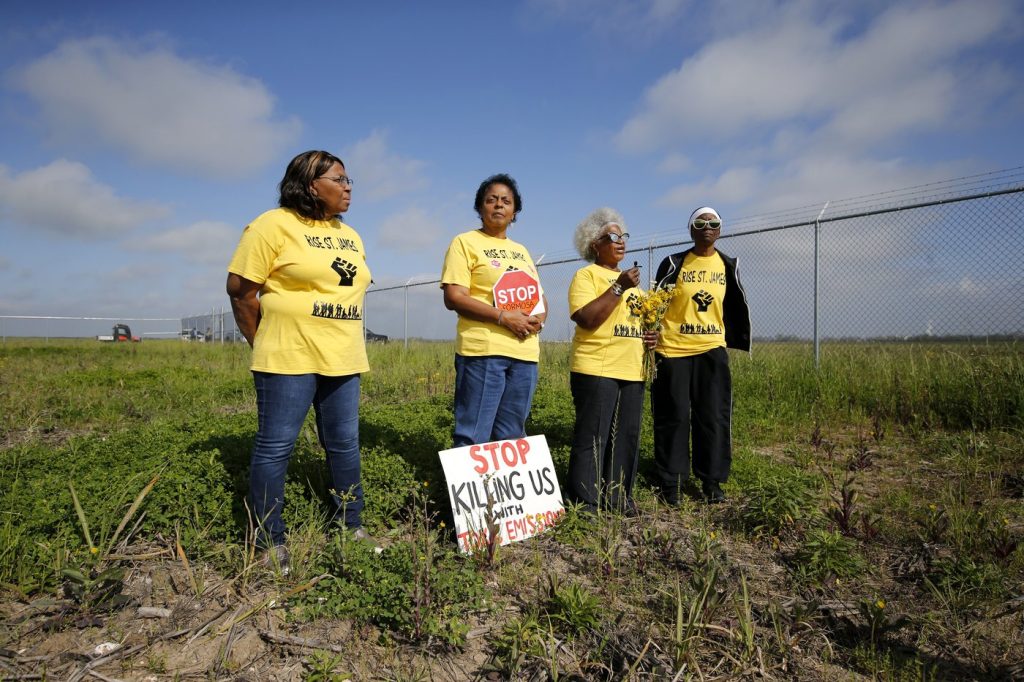For four years, the Environmental Protection Agency (EPA) prioritized environmental justice, focusing on improving health conditions in communities heavily impacted by pollution, particularly those populated by Black, Latino, and low-income Americans. However, this period has come to an end with the recent reversal of policies under President Donald Trump.
In his first week back in office, Trump dismantled a team of White House advisors dedicated to ensuring that federal initiatives addressed the needs of communities near heavy industrial areas. He also abolished the "Justice40" initiative established by the Biden administration, which mandated that 40% of benefits from specific environmental programs be allocated to communities most affected by pollution.
Experts warn that the current administration’s actions may lead to a disregard for the additional pollution that new facilities could introduce to these vulnerable communities. Trump's decisions are expected to impede funding from the Inflation Reduction Act, a key climate law previously championed by the Biden administration, impacting both climate programs and environmental justice initiatives.
Trump's recent directives eliminate a longstanding federal policy initiated during the Clinton administration, which sought to address environmental health issues affecting low-income and minority groups. Additionally, Trump withdrew the United States from the Paris Agreement, a global effort to combat climate change.
The new administration’s strategy appears to align with criticisms from Trump officials, who argue that previous environmental policies were overly restrictive and detrimental to development. There has been a notable shift toward confronting "diversity, equity, and inclusion" efforts, reflecting a broader conservative backlash against these initiatives, according to Joe Luppino-Esposito of the Pacific Legal Foundation.
Many experts acknowledge that the Biden administration made significant strides in addressing environmental justice. An EPA-funded study indicated that Black individuals, regardless of income, are more susceptible to pollution that causes serious health issues such as heart and lung diseases. Under Biden, the EPA set stricter air pollution standards, implemented public health regulations targeting harmful lead pipes, and enforced the largest-ever fine under the Clean Air Act, resulting in a reduction of over 225 million pounds of pollution in overburdened communities.
Jade Begay, an Indigenous rights and climate organizer in New Mexico, expressed sorrow over the regression in environmental justice efforts, noting that just weeks ago, there was hope for continued progress. The level of government support for grassroots environmental justice initiatives has historically fluctuated with changes in administration. Although local organizations have often found ways to continue their work independently, the Biden administration’s previous attention to the issue raised its importance, making it a target for conservative activism.
Daniel Gall, spokesman for the EPA, stated that the agency will continue to work towards clean air, land, and water under Trump's presidency. However, the recent policy shifts are considerably broader compared to the previous Trump administration, casting a shadow over decades of progress in combating environmental discrimination, as noted by Rena Payan from Justice Outside.
Efforts to dismantle diversity, equity, and inclusion initiatives are expected to extend beyond public policy into private sectors, an unexpected development cited by environmental attorney Julius Redd. Anne Rolfes, director of the Louisiana Bucket Brigade, remarked that the Biden administration had made strides but ultimately did not enforce laws effectively, granting polluters considerable leeway in heavily industrialized areas, especially in her home state of Louisiana.
This shift leaves many advocates feeling disheartened. Ash LaMont, national campaigns director for Honor The Earth, emphasized the need for community-focused action, despite the changing political landscape. Similarly, Peggy Shepard, co-founder of WE ACT for Environmental Justice in New York, highlighted that advocacy efforts will need to transition to state and local levels, presenting challenges particularly in Republican-controlled states like Louisiana and Texas.
Overall, the rollback of environmental justice initiatives under Trump's administration marks a substantial setback for communities that were beginning to receive federal support to address ongoing environmental challenges.










